Our Staff

Rachael Steidl
Executive Director & Founder
ceo@youthwell.org
805.770.1930 ext 7
(m) 805.448.2426
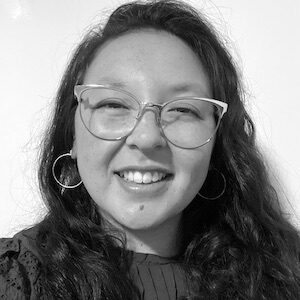
Ria Sager
Executive Assistant
Support Groups & YLN
info@youthwell.org
805.770.1930 ext 1 or 3
(m) 805.770.1239
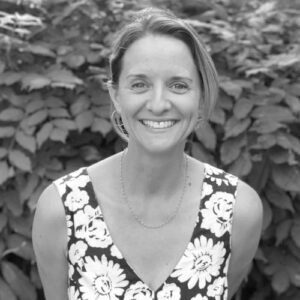
Elise Fields
Family Care Coordinator
& Community Liaison
navigator@youthwell.org
805.770.1930 ext 2
(m) 805.770.1218
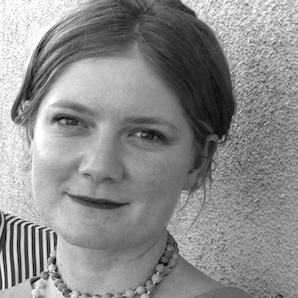
Michelle Kurta
Youth Advisor & Community Mental Health Educator
YAB@youthwell.org
805.770.1930 ext 5
(m) 805.770.1503
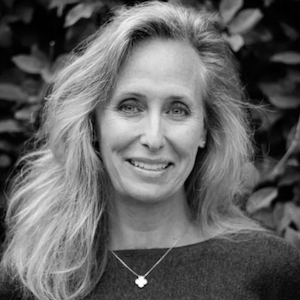
Barbara McWhirter
Family Care Coordinator
familycare@youthwell.org
805.770.1930 ext 2
(m) 805.770.1218
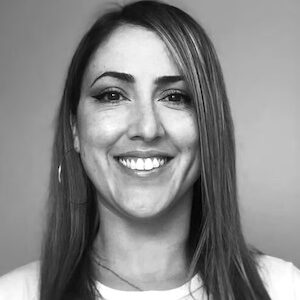
Ashley Kelly-Holden
Youth Advisor & Community Mental Health Educator
mhtraining@youthwell.org
805.770.1930 ext 4
(m) 805.770.1593
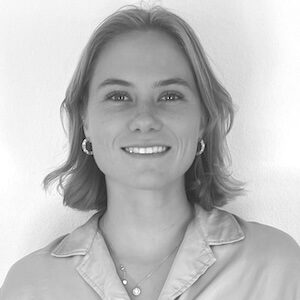
Bella Gniadek
Marketing & Outreach
outreach@youthwell.org
805.770.1930 ext 6
Advisory Board
David Selberg,
CEO, Hospice of Santa Barbara
Geoff Green,
CEO, SBCC Foundation
Katy Bazylewicz,
VP Marketing & Population Health, Cottage Health
Kristen Sullivan
Executive Director, Towbes Foundation
Megan Rheinschild,
Director, SB DA Victim Witness Assistance
Rachael Steidl,
Executive Director, YouthWell
Susan Salcido,
Superintendent, SB County Education Office
Our History
One of the biggest reasons people don't seek help or support when they are struggling with a mental health challenge is because of the stigma and shame associated with it. No one should suffer in silence.
-
YouthWell works in collaboration on youth mental health prevention and early intervention [1] to eliminate stigma through education and provide tools and tips for managing mental wellness and practicing self-care in order to build resilience [2] to simplify access and connect youth, ages 5-25, and their families to mental health resources before the crisis [3] towards systemic change that encourages collaboration so that we can fill the gaps and remove barriers to services
-
COMMUNITY COLLABORATIVE & YOUTH LINKAGES NETWORK: YouthWell mobilizes 60+ community stakeholders to improve outcomes and affect systemic change through collective impact. We work to eliminate stigma, fill the gaps, and remove barriers to services so youth and families can access the care they need in a timely manner through a warm handoff. Stakeholders include providers, school districts, healthcare, law enforcement, juvenile probation, foster care, and those representing our marginalized communities.
-
RESOURCES: The online Youth and Family Mental Health and Wellness Resource Directory can be viewed in English and Spanish. Families can search for services for youth, ages 5-25,, and find treatment programs, crisis helplines, therapists, and aftercare resources. The Community Calendar lists workshops, support groups, classes, and more.
YOUTH ADVISORY BOARD: Launched in 2023 for high school students to learn about mental health issues and how to advocate on their campuses and in their communities. Students gain leadership tools that include planning, facilitating, public speaking, communication skills, program planning, evaluation and group decision-making. YouthWell in partnership with SB County Behavioral Wellness hosts an annual Student Advocacy & Mental Wellness Summit.
FAMILY CARE COORDINATION CENTER: YouthWell is participating in a 2-year pilot project providing a Family Care Coordination Center in order to help families navigate their mental health journey.
-
SUPPORT GROUPS: YouthWell provides support groups for Parents, Youth, and Teachers in Santa Barbara County. Participants learn coping strategies, how to set boundaries, manage challenges and stress, strengthen relationships, and focus on their own self-care in order to build resiliency.
EDUCATION: YouthWell provides free virtual Wellness Workshops on a variety of topics for students (ages 10-25), parents, and those working with youth. Participants learn tools and tips for managing their mental wellness and practicing self-care in order to build resilience so they are better equipped to cope with stress and challenging situations. Spanish interpretation is provided.
MENTAL HEALTH TRAINING: YouthWell partners with FSA to offer free Mental Health First Aid and QPR in SB County. Training empowers teens, parents, educators, first responders, and other caring adults with tools and strategies. Teaches teens and adults who work or live with youth between the ages of 12-18 how to help someone who may be developing or coping with a mental health challenge. Participants learn how to recognize, understand, and respond appropriately to signs of mental health challenges of varying intensity, as well as substance use disorders.
**In 2024, YouthWell taught 706 adults and students in Santa Barbara County.
-
OUTREACH: YouthWell sends newsletters highlighting mental health issues and local resources as well as promoting on social media tips for recognizing the signs of emotional distress and ideas for practicing self-care. We outreach through our social awareness campaign, "our mental health matters". Resource Rack Cards & Posters are distributed to schools throughout Santa Barbara County.
-
Follow @youthwell on instagram • facebook • youtube channel • linkedin • pinterest • twitter and Subscribe to newsletter
-
Below is an overview of how YouthWell got started, how we have evolved, and our focus for the upcoming year. You can scroll to see things by year. View our SLIDE DECK with an overview of the issues and Community Collaborative projects.
Timeline
2024 priorities
The Collaborative continues to address how we make systemic change in our community to address the youth mental health needs. Current challenges include... [1] improving resource referrals with warm handoffs [2] increasing access to parent support groups [3] providing drop-in therapy in-person & virtual [4] providing transportation to services [5] creating a countywide student wellness council in order to engage the youth voice.
Current Projects: Wellness Workshops and MHFA/QPR training, Resource Directory, Community Calendar, Resource Rack Cards & Posters, Our Mental Health Matters Campaign, Convene Collaborative, allcove in SB, and partner on multiple grants.
New Projects: [a] Youth Advisory Board, [b] Support Groups for parents, teachers, and youth, [c] Family Care Coordination Center
family care coordination center
Participate in a 2-year pilot project providing a Family Care Coordination Center in order to help families navigate their mental health journey.
youth advisory board & summit
YouthWell launched a Youth Advisory Board in 2023 for high school students to learn about mental health issues and how to advocate on their campuses and in their communities. Students gain leadership tools that include planning, facilitating, public speaking, communication skills, program planning, evaluation and group decision-making.
YouthWell in partnership with SB County Behavioral Wellness is hosting a 2024 Youth Advocacy & Mental Wellness Summit.
Designed for students throughout Santa Barbara County who are passionate about learning how to advocate for issues they believe in.
A workshop for high school student leaders (9th-12th grade) to develop leadership and advocacy skills, with a focus on community engagement, eliminating stigma, and prioritizing mental wellness.
Students learn to amplify their voice on issues that matter to you from a panel of speakers and by participating in break-out groups with other students throughout SB County.
support groups
Launched support groups for parents, youth, and teachers.
Participants can connect with one another, learn coping strategies, how to set boundaries, manage challenges and stress, strengthen relationships, and focus on their own self-care in order to build resiliency.
resource posters
Designed and provided 11x17 resource posters in English and Spanish for school districts in order to meet the AB 748 REQUIREMENTS [Section 49428.5 Education Code] for the 2023-24 school year.
This requires that each school site in a school district, county office of education, and charter school serving pupils in any of grades 6 to 12, create a poster that identifies approaches and shares resources regarding pupil mental health.
our mental health matters campaign
The Our Mental Health Matters campaign for Santa Barbara County is designed to encourage youth and families to...
[1] Make self-care a priority in their daily lives.
[2] Seek help when they need it.
[3] Show compassion when someone is struggling with a mental health challenge.
[4] Treat mental health challenges with the same respect and care we show someone with a physical illness or injury.
Outreach included providing [1] 4x9 double-sided community resource rack cards & posters created in English and Spanish with resource information and fun tools for practicing self-care. [2] Social media posts with community members sharing how they practice self-care. [3] Ads in the airports and the Easy Lift vans promoting the importance of asking for help.
youth linkages network [YLN]
The Youth Linkages Network was created [June 2022] after partnering on a multi-year state gran with SBCEO and SBC BWell to provide Resource Navigators in the schools.
40+ resource navigators, probation officers, local crisis lines, and school counselors convene monthly to learn and share in order to foster “warm handoffs” and close the loop when referrals are made to ensure youth and caregivers access services.
resource directory & community calendar
Launched an online Youth and Family Mental Health and Wellness Resource Directory that can be viewed in English and Spanish for Santa Barbara County. Families can search for services for youth, ages 0-25, and find treatment programs, crisis helplines, therapists, and aftercare resources
The Community Calendar lists workshops, support groups, classes, volunteer opportunities for students, and more.
expanded countywide
In 2020, as a result of the pandemic and the opportunity to host virtual meetings, the Collaborative expanded to mid and north county. 60+ partnering agencies in Santa Barbara County convene quarterly including school districts, community-based organizations, providers, healthcare, law enforcement, faith communities, and caregivers.
virtual workshops
YouthWell pivoted in 2020 during the pandemic to offer weekly virtual wellness quaranTEEN workshops for youth as the mental health needs of students were increasing, serving 900+ youth in 8 weeks. They were designed to help youth feel connected to other students, focus on mental wellness, and have some fun exploring other interests.
In the fall, the Wellness Workshops were offered monthly and expanded to include parents, youth, and those working with youth. The virtual format allowed us to expand our audience to all of Santa Barbara County with 150-400 in attendance.
All workshops can be viewed on YouthWell's YouTube channel.
mental health first aid & qpr
YouthWell has been providing free Mental Health First Aid and QPR Training in partnership with FSA and Mental Wellness Center since 2018.
In October of 2018, FSA, Mental Wellness Center, and YouthWell received a 3-year SAMHSA grant (renewed in 2021 for 4 more years) that has provided an opportunity for more community education allowing us to focus on prevention and early intervention.
Youth Mental Health First Aid is being offered monthly for free to parents, youth service providers, and community members.
supporting our schools
Designed and distributed a Youth Mental Health & Resource Flyer in English and in Spanish for the Santa Barbara, Goleta, and Carpinteria junior high and high schools to more easily connect students and parents to mental health resources.
Support provided to San Marcos High School after a chat room incident with students. School-based service providers convened to work together with school staff on best way to do campus outreach. Rachael co-hosted a freshman assembly and break-out sessions at DPHS and SMHS for 400+ students at each school focused on mental health and healthy friendships.
Collaborative supported FSA & CADA on the SBUSD RFP. The funding provided support for YouthWell to host a Youth Service Providers Workshop with 78 providers attending from various orgs and schools. Focused on building connections between counselors, SRO’s, on-campus therapists, and community organizations providing services to the schools in order to create stronger referrals with everyone having a better understanding of school mental health and crisis protocols and for schools to better understand services each organization provides both on and off campus.
in-person workshops
Community workshops were hosted quarterly and designed to give parents, educators, and providers more tools when working with youth. In-person workshops were held at Deckers Brands with 200+ in attendance.
learning about allcove
In August of 2016, Rachael attended the Adolescent Mental Wellness Conference hosted by Stanford to learn more about how Palo Alto and other communities have been addressing similar issues. Following this, the Collaborative hosted Denise Gunn, principal at Gunn School and Mary Gloner, executive director of Project Safety Net Coalition to speak about how they implemented change in the Palo Alto school district. 56 attended including funders, school district staff, teachers, SRO's, PTSA, CBO’s, and SBC BWell.
Dr. Zev Nathan supported the Collaborative with bringing Dr. Steven Adelsheim, Director, Stanford Center for Youth Mental Health and Wellbeing to speak about allcove. In June 2018, a non-binding letter was submitted to Dr. Steve Adelsheim requesting implementation support to pilot an integrated mental health care space for Santa Barbara youth (Headspace model). Rachael and Annmarie joined Dr. Steve Adelsheim from Standford and visited the Foundry in Vancouver Canada to learn more about the benefits for youth.
In January 2019, Rachael Steidl moderated a Community Forum in Carpinteria hosted by Das Williams and HopeNet, Strengthening Community Mental Health Resiliency. Speakers included Annmarie Cameron, Von Do-Reynoso, and Kristen Escobedo.
In 2018, 7 representatives from SB attended the Adolescent Mental Wellness Conference including Rachael Steidl, Annmarie Cameron, Frann Wageneck, Alana Walzak, Ama Atideu, Georgina Dahill, and Christy Stillwell. The conference focused on Overcoming Cultural Barriers to Access.
mission & vision
Mobilized community stakeholders, service providers, schools, and caregivers to establish priorities and set goals, in order to create a coordinated and comprehensive system of care focused on early intervention, prevention and education. Mission and vision established...
Vision: Increase youth mental health prevention and early intervention efforts. Work towards systemic change that encourages collaboration so that we can fill the gaps and remove barriers to services for all youth and their families so that they can access the care they need in a timely manner through a warm handoff.
Mission: Prioritize prevention, and early intervention (PEI). Eliminate stigma through education and provide tools and tips for managing mental wellness and practicing self-care in order to build resilience. Simplify access and connect youth through age 25 and their families to mental health resources before the crisis.
community collaborative
The Community Collaborative formed in May of 2016 with Rachael Steidl convening key stakeholders in the community to come together to start the discussion and address the mental health gaps in services for students and their families in south Santa Barbara County.
Phase 1 was a one-year process that built connections and trust between stakeholders while exploring the challenging issues surrounding youth mental health in our community. We redefined “underserved” to include all youth since mental health is nondiscriminatory. An Advisory group was formed in 2017.
The Collaborative successfully worked together and identified gaps in services, barriers to access, and an understanding that there is limited access regardless of ability to pay for services. With programs that do exist, there are often waiting lists which means students and families are not able to get support. There was consensus that we need to increase training, education, and outreach, expand services and make them accessible to all students struggling with mental health issues.
